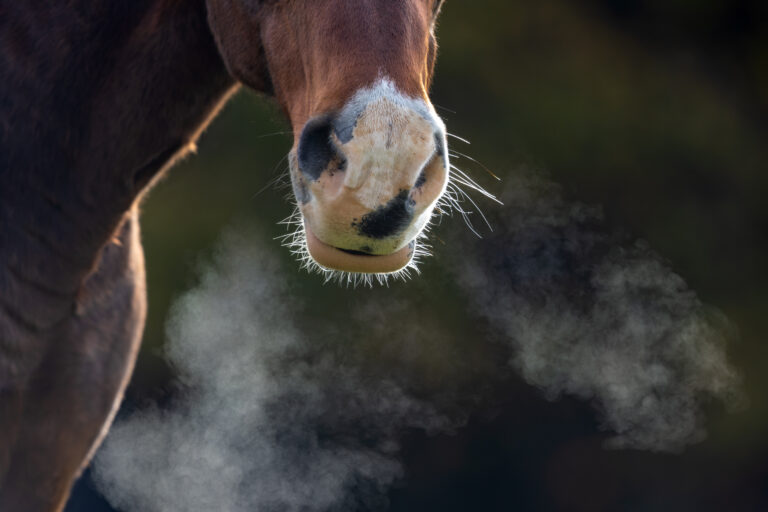Recent research compared horses with lymphoma versus normal, healthy horses to determine if equine herpesvirus-5 could be associated with the development of some types of equine lymphoma. More on this research, titled “Identification of equine herpes virus 5 in horses with lymphoma,” can be found in the online version of the Journal of Equine Veterinary Science.
Abstract
“Equine multinodular pulmonary fibrosis, equine herpesvirus 5, and multicentric lymphoma were discovered in one patient. Review of gamma herpesvirus activity in humans revealed a propensity for lymphoproliferative disorders associated with infection. The objective was to determine the frequency of equine herpesvirus 5 in lymphoma tissues and compare with the frequency found in the lymph nodes of clinically normal horses. Case control investigation of lymphoma positive tissues and analysis via PCR for EHV-5 was performed on 12 horses. Prospective collection and PCR analysis of lymph nodes (mesenteric or submandibular) for EHV-5 was performed on 21 control horses. Thirteen samples of lymphoma positive tissues and fluid were submitted for PCR analysis for EHV-5. Of these, 67% were positive. In the control horse population, 14% were positive for EHV-5 (p = 0.004). Neoplastic samples positive for EHV-5 were classified as T-cell rich B-cell lymphoma (3), T-cell lymphoma (1), 1 was non-differentiated, and 2 were not stained. Gamma herpesviruses in humans have been associated with lymphoproliferative diseases such as Kaposi’s sarcoma and Burkitt’s lymphoma. This study reveals an increased frequency of equine herpesvirus 5 (gamma herpesvirus) in horses diagnosed with lymphoma compared to healthy control horses. Although the exact role this virus plays in the initiation or perpetuation of lymphoproliferative neoplasia is unknown, EHV-5 may be an etiologic agent associated with the development of some types of equine lymphoma.”
Authors
Karie A. Vander Werf, DVM, MS
Elizabeth G. Davis, DVM, PhD, DACVIM
Kyathanahalli Janardhan, MVSc, PhD, DACVP
Bhupinder Bawa, DVM, PhD, DACVP
Steve Bolin, DVM, MS, PhD
Kelli Almes, DVM, DACVP









